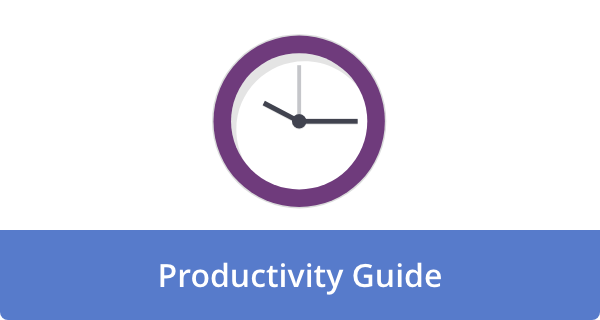

You may have seen folks around you who get everything done and then some. How do they get so much done so fast?
Time management is the answer.
Time management is the art of organizing and allocating minutes, getting things done. This maximizes productivity and achieves goals. Time management improves job performance and life satisfaction while reducing stress. High achievers don’t just happen. Rather, they’ve honed the talents required to achieve more in less time.
Productivity is a skill.
It’s an acquired talent that everyone must learn. However, it is feasible (and simple) to learn time management. There are several tools, strategies, and approaches available to assist you. We’ve rounded together our finest 32 day-saving ideas.
Planning Your Time to be Done Faster
Planned calendar management will help you build solid habits, get things done and increase your chances of success.
1. Conduct a time audit.
First things first: figure out where you spend your time. Often, what you believe is taking up your time isn’t. Humans are lousy at estimating task duration. Let’s say you need to send a 300-word email. Think: “Emailing is easy. It should just take 5 minutes.” Proofreading, checking language choice, and identifying email addresses are all duties that might add to the task’s duration. Your 5-minute email may take you 20 minutes, 500% longer than expected with such changes.
Assume you have the same issue with numerous tasks. A balanced workload will inevitably turn into a hectic to-do list during the day. You need to know what you can do and what is genuinely eating up your minutes. That’s why a time audit is useful. The most straightforward approach to undertake a time audit is using calendar tracking software. Many firms provide free software, but Toggl Track is the easiest, with applications for all devices.
Track your activities for a week to get an accurate time utilization picture. Then, examine the reports at the end of the week and analyze the time you spend on various chores. With this data, you can quickly improve. For example, you may waste time in useless meetings or busywork.
Now you can see how you spend your time and prepare accordingly.
So here’s the next piece of advice.
Tip #2: Set realistic goals and prioritize and be done.
Time management won’t assist you if you have too much to do. After doing a time audit, you’ll know if you need to manage your time better or if you have too much on your plate.
For attainable goals, skip to suggestion 3.
If you feel overwhelmed, create an Eisenhower matrix or use the 4 Ds of time management: Do, Defer, Delegate, and Delete. Your duties are divided into four categories into both methods:
Do: Important and urgent tasks.
Defer: Important yet non-urgent tasks.
Delegate: Urgent but unimportant tasks.
Delete: Non-urgent or non-critical tasks.
These methods will help you decide what jobs to prioritize, schedule, delegate, or remove. They should be SMART: Specific, Measurable, Achievable, Relevant, and Timely.
Tip #3: Make a daily management strategy.
You can do this in the morning or at the end of the day. Creating a daily to-do list is one of those time slots. Keep your to-do list simple. The sight of half-completed lists is discouraging.
Even in personal productivity, it’s preferable to under-promise and over-deliver. Write your list as though you’ve already finished it. Submit Report to Project Manager instead of “Submit Report to Project Manager.”
This tiny method will give you an extra push of desire to finish your duties.
Tip #4: Sunday planning management
A strategy will help you focus on your critical goals during the workweek. It also enables you to move from weekend mode to “work mode” on Monday morning. First, spend a few minutes on Sunday planning your entire week. Then, break down weekly goals into daily chores to increase achievement.
You’ll be able to see your daily tasks at a glance. Schedule low-priority work for Fridays and other low-energy days. The week’s energy and creative levels change. Finish creative projects on Tuesday and Wednesday. Plan meetings for Thursday, when your team’s energy drops. Plan and network on Fridays and Mondays.
Personal productivity has hundreds of variations. Because everyone works differently, experimenting with these time management techniques will help you find the ideal strategy for you.
Tip #5: Finish your most critical and time-consuming activities first thing.
The first few hours of work are usually the most fruitful. This is because you can focus better while your brain isn’t completely awake.
They have less energy for daydreaming and other duties. So, preferably, do your most intellectually demanding responsibilities first thing in the morning.
Image Credit: Ketut Subiyanto; Pexels; Thank you!

























Hunter Meine
Hunter Meine is a BYU-Idaho graduate, husband, father, and writer. When he's not writing, he's playing sports or enjoying the outdoors with his wife and daughter.